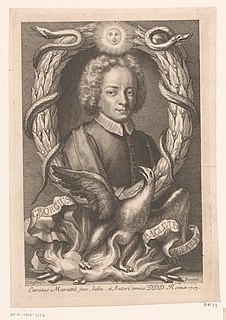A Quote by Johann Kaspar Lavater
Who is respectable when thinking himself alone and free from observation will be so before the eye of all the world.
Quote Topics
Related Quotes
A Christian should put away all defense and make no attempt to excuse himself either in his own eyes or before the Lord. Whoever defends himself will have himself for his defense, and he will have no other. But let him come defenseless before the Lord and he will have for his defender no less than God Himself.
A man's knowledge may be said to be mature, in other words, when it has reached the most complete state of perfection to which he, as an individual, is capable of bringing it, when an exact correspondence is established between the whole of his abstract ideas and the things he has actually perceived for himself. His will mean that each of his abstract ideas rests, directly or indirectly, upon a basis of observation, which alone endows it with any real value; and also that he is able to place every observation he makes under the right abstract idea which belongs to it.
I’m free, I think. I shut my eyes and think hard and deep about how free I am, but I can’t really understand what it means. All I know is I’m totally alone. All alone in an unfamiliar place, like some solitary explorer who’s lost his compass and his map. Is this what it means to be free? I don’t know, and I give up thinking about it.
By no amount of reasoning can we altogether eliminate all contingency from our world. Moreover, pure speculation alone will not enable us to get a determinate picture of the existing world. We must eliminate some of the conflicting possibilities, and this can be brought about only by experiment and observation.
That cactus went right through my eye. It left my eye flat. They took me to a doctor, and he said, 'We'll have to take the eye out.' ...I fought like a tiger. I said, 'No! Leave the eye alone. I am sure it will grow back.' The doctor said, 'You're too young to know.' ...But in a year's time that fluid came back, and that eye is just as good as the other one today.





































